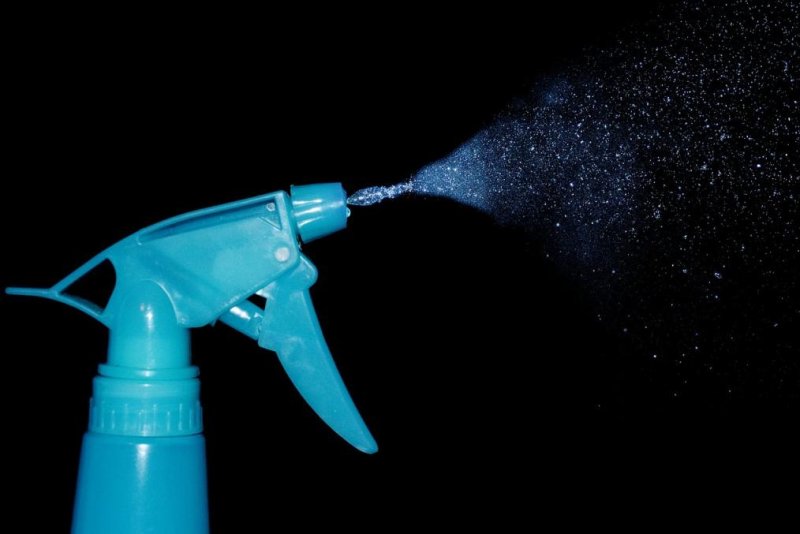A study found commonly used household cleaners were associated with overweight children because of altered gut microbiota. Photo by
pixabay
Sept. 17 (UPI) -- Commonly used household cleaners was associated with overweight children because of altered gut microbiota, according to a study conducted in Canada.
Researchers studied exposure to disinfectants, detergents and eco-friendly products used in the home among 757 infants at age 3-4 months and weight at ages 1 and 3 years. Their findings were published Monday in the Canadian Medical Association Journal.
Data was analyzed from the Canadian Healthy Infant Longitudinal Development birth cohort on microbes in infant fecal matter between 2009 and 2012 in Vancouver, Edmonton, Winnipeg and Toronto. World Health Organization growth charts for body mass index scores were used.
The authors noted greater emphasis on cleanliness has led to widening use of disinfectants and other cleaning agents in the home. Past research has found an elevated risk of wheezing in persons using these products and in their children, but limited information is available on overweight risk.
Studies of piglets found similar changes in the gut microbiome when exposed to aerosol disinfectants.
"Antibacterial cleaning products have the capacity to change the environmental microbiome and alter risk for child overweight," the authors wrote. "Our study provides novel information regarding the impact of these products on infant gut microbial composition and outcomes of overweight in the same population."
Infants living in households with disinfectants used at least weekly were twice as likely to have higher levels of the gut microbes Lachnospiraceae at age 3-4 months. And when they were 3 years old, their BMI was higher than children not exposed to heavy home use of these products as an infant.
The researchers found greater associations with altered gut flora in babies 3-4 months old were strongest for frequent use of household disinfectants, which showed lower levels of Haemophilus and Clostridium bacteria but higher levels of Lachnospiraceae.
Also, they found an increase in Lachnospiraceae bacteria with more frequent cleaning with disinfectants.
"Those infants growing up in households with heavy use of eco cleaners had much lower levels of the gut microbes Enterobacteriaceae," principal investigator Dr. Anita Kozyrskyj, a University of Alberta pediatrics professor, said in a journal press release. "However, we found no evidence that these gut microbiome changes caused the reduced obesity risk."
The authors want further studies to classify cleaning products by their actual ingredients.
"There is biologic plausibility to the finding that early-life exposure to disinfectants may increase risk of childhood obesity through the alterations in bacteria within the Lachnospiraceae family," epidemiologists Dr. Noel Mueller and Moira Differding, of the Johns Hopkins Bloomberg School of Public Health, wrote in a related commentary.















